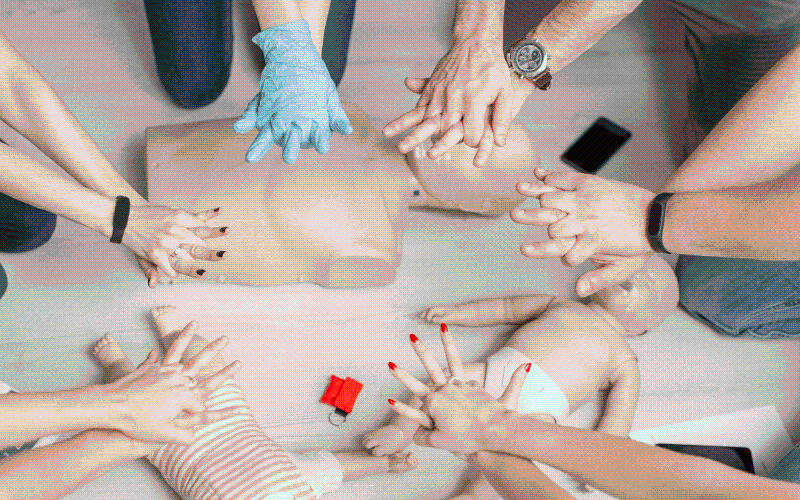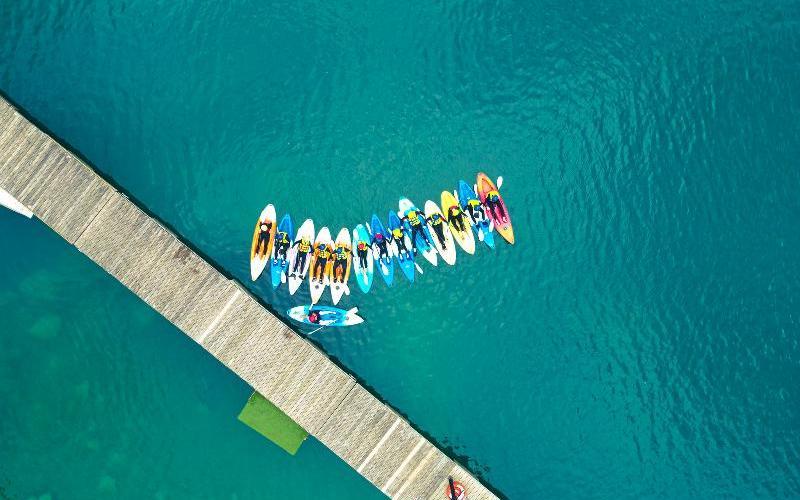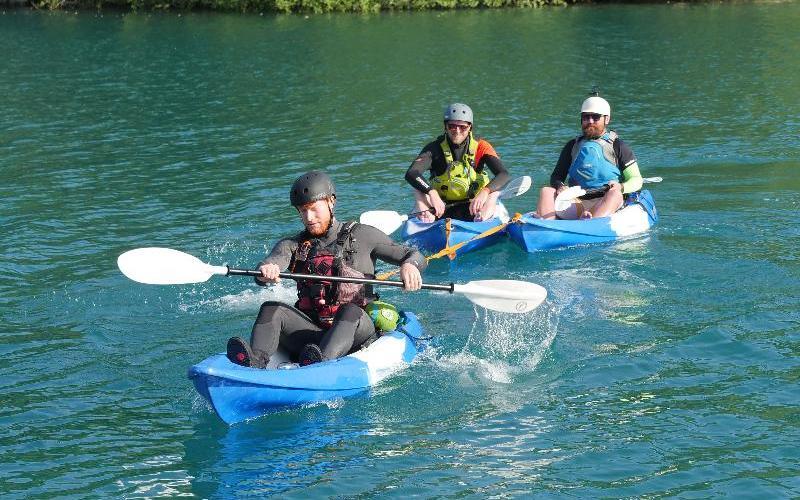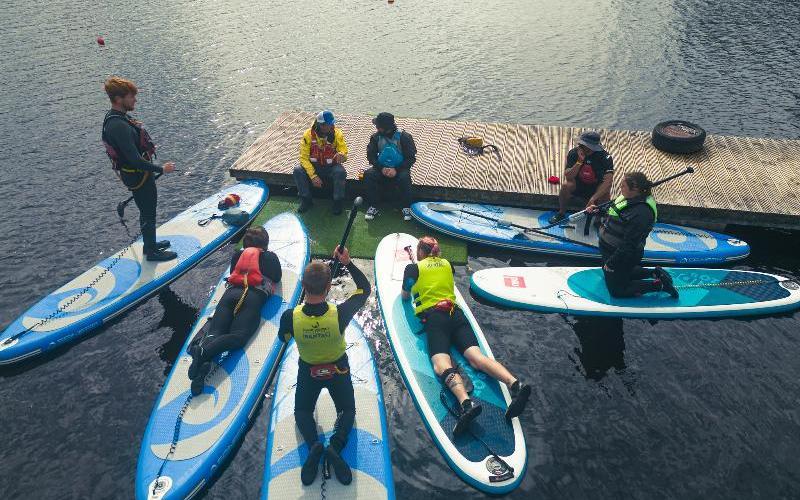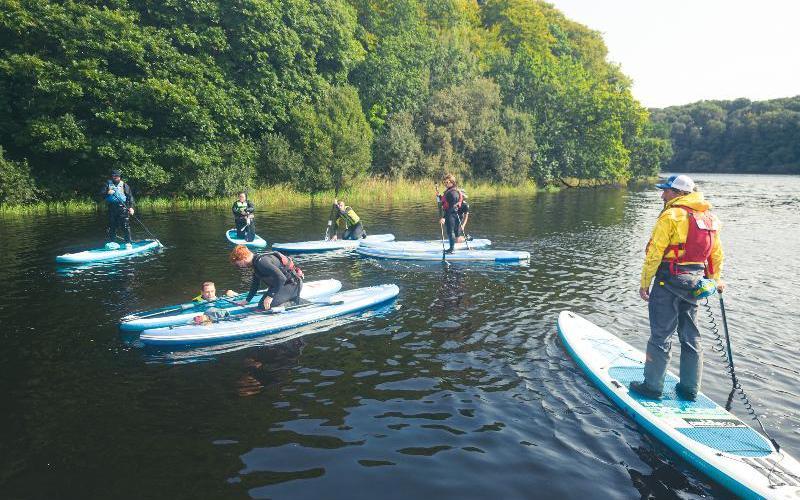Summary
Outdoor Instructor Course, Ballyhass Mallow
-
Course Length 16 Weeks
-
Suitable Ages 18 yrs +
-
Days 4 per week
-
Accommodation Available
-
Location Ballyhass Mallow
-
Funding Available
Find Us
Outdoor Instructor Training Course - 18 Weeks
***2025 COURSE DATES TO BE ANNOUNCED SHORTLY.
***REGISTER YOUR INTEREST TO BE CONTACTED WHEN APPLICATIONS ARE OPEN
The Outdoor Training Academy is proud to announce that in association with Skillnet Duhallow and MTU Kerry, we are providing an 18-week outdoor instructor course with a wide range of skills and qualifications enabling successful candidates a pathway to their career in the outdoors.
Based out of Ballyhass Adventure Group Mallow, this course focuses on center-based outdoor activities giving you the abilities, knowledge, and passion for instructing outdoor activities. Throughout the course, you will be registered as a student of MTU Tralee with an aligning student card. You will also get a chance to engage with IRD Duhallow, Ballyhass Coachford, Galtee Mountain Ranges, MTU Tralee, experienced training providers, and lots more.
Following this 18-week course, inclusive hands-on training, classroom learning, work placement, and assessment, you can leave as a qualified outdoor activity instructor ready to tackle any Outdoor Center of your choice.
Join Eoghan and David from the Outdoor Training Academy.ie as they unravel the intricacies of our 18-week Outdoor Instructor Course. If you've ever wondered whether this course is for you, or are curious about what it offers, this video provides all the answers.
- 10 different qualifications
- Subsidised accommodation available
- 18 weeks including work placement and assessments
- €2500 - Full funding is available*
- Internationally recognised awards
- Increases your career prospects
- 16 spaces available
ERCA High Ropes & Adventure Park Instructor
RLSS Open Water Lifeguard
WSA Sit On Top Safety & Rescue
WSA Sit On Top Instructor
WSA SUP Safety & Rescue
WSA SUP Instructor
Nets Course Instructor
Mountain Skills 1&2 (Training)
First Aid Responder
Manual Handling
HACCP Level 1
Child Safeguarding
Munster Technological University (MTU) - Kerry is a higher education third level college, part of the Munster Technological University (MTU). MTU Kerry is a involved in provision of thrid level education, training and development across a diverse range of faculties of state. MTU Tralee also progressively networks and maintanes links with other training, education and professions within associated sectors
The Outdoor Training Academy has partnered with MTU - Kerry to bring two Level 7 Minor awards to the students on our Adventure Centre Instructor course. Students will partake in these modules as part of the 18 week course.
Level 7 Minor Awards
Adapted Adventure Education - PHAC71002
The module aims to prepare students to deliver adventurous Outdoor Learning activities for specific populations with special needs or disabilities promoting the development of individual potential, full inclusion, enjoyment and success. (See module descriptor here)
Principles and Practices of Youth and Community Work - SOCL71004
The aim of this module is to introduce the student to the historical origins, philosophy and development of community and youth practice in Ireland and internationally with the intention that they will be in a better position to reflect on their own practice. Students will be presented with an outline of the different approaches underpinning youth and community work in Ireland and abroad with a view to helping them reflect on their current practice and consider how these perspective can be incorporated into future practice.
Further Education - BA in Outdoor Learning
Following on from this course, successful learners who wish to further their education, career and can forsee college being an appropriate and oppertunity fulfilled path may find interest in what MTU Kerry can offer. Learners, having completed and passing NFQ modules delivered on the Outdoor Training course will have 20 credits towards the course if seeking a place. Information on the Bachelor of Arts in Outdoor Learning can be found by clicking the course title.
Participants of the Outdoor Instructor Course are invited to stay in holiday cottages onsite for the duration of the course at a subsidised rate of €35 per week.
All rooms are twin and course participants will roomshare with another participant of the same gender and similar age.
Our Mission is to get everyone active Outdoors by providing Accessibility, Affordability and Education as a first step to creating your amazing outdoor future!
We aim to broaden and strengthen your instructor skillset.
To provide an alternative to traditional hands-off training.
Upon Successful completion of this course, Instructors will be able to demonstrate the following:
PO Knowledge:
Instructors will be able to demonstrate knowledge of Theory, Practical, and Methods relating to areas of outdoor activities, group leading and learning facilitation with customers. With further awards, instructors will be able to demonstrate practical and technical knowledge with bodies such as ERCA, EMTS, RLSS, WSA, and Mountaineering Ireland.
PO Skill:
Instructors will be able to demonstrate competence with skills and practices related to different aspects of outdoor activities. Instructors will be also equipped to analyze groups, sessions, and situations in the moment and select the appropriate methods for the best results. Progressive and Industry skills and technical abilities can be gained through bodies such as ERCA, RLSS, WSA, and EMTS
PO Competence:
Demonstrate problem-solving skills for the group leading in a creative, accountable, and professional manner with safety and risk assessing in mind. Instructors will be equipped to work independently or as a member of a team in delivering, instructing, and co-ordinating group sessions in outdoor activities. Instructors should display qualities such as self-directed, confidence, accountability, and engage a learning-to-learn approach with the aim of broadening and upskilling in the outdoor adventure industry
What costs are covered with course fees or funding the course?
All Course module delivery; ERCA High Ropes Instructor; ERCA Net Park Instructor (Special Element); ERCA Adventure Park Instructor; First Aid Responder; Manual Handling; Child Safeguarding ; Professional Development ; WSA SOT Instructor; WSA SUP Instructor; WSA SOT Safety & Rescue; WSA SUP Safety & Rescue; RLSS Open Water Lifeguard; HACCP Lvl 1; Mountain Skills 1 & 2 Training ; Offsite Trips; Trainer costs; Equipment use ; Teaching Venue utilities (WiFi, electricity, heating)
What costs are not covered in the course fee or funding?
Membership registration for awarding bodies; Mountain Skills Assessment (Not Part of Course) -€200; Accommodation - €35 weekly; Travel or Transport to teaching Venues (e.g Mountain Skills, swimming pool etc); Swim Sessions - €7 per 1hr booking; Repeat Assessments from awarding Bodies - €200 approx per assessment
What equipment would I need to partake in this course?
No equipment is specifically needed to partake on this course however some equipment items would be beneficial for some of the modules on the course. All sports equipment is provided by the Training Academy incl. but not limited to wetsuits, BAs, kags, paddles etc. This equipment is returned at the end of the course.
Personal Equipment that would be essential would be the following: Rain Jacket, Water-resistant Pants, hiking boots or shoes, comfortable warm clothing, gear bags, Note pads and pens, learning aids.
There will be an opportunity throughout the course to buy equipment when the company does a bulk order. This equipment will be able to be selected from the website and the price will be that of the buy-in price of the Training Academy
What other costs are to be considered with attending this course?
Other costs related to this course will be week-to-week living costs and sustainability costs of each individual on the course for the duration of the 18 weeks. These costs will become known from the first few weeks and remain somewhat stable as you go through each week. Any jump in costs will be communicated well in advance during the course if an off-site week was coming up or a module that would have to be delivered in a campus or different center
What living costs should I expect throughout the course?
Each person is individual and some will generate less living costs than others. Individuals should think about the essential items they need to get through their week e.g food, travel, and accommodation. They should also think about non-essential and budgeting expenses for weeks that have more off-site trips and potential memberships. See the link here of a chart with what to expect with costs of living on a weekly basis
https://www.numbeo.com/cost-of-living/country_result.jsp?country=Ireland
What location will we be based from during the course?
The course will be based majorily from Ballyhass Lakes Mallow, Co. Cork. Certain modules will require off site or alternate site attendance but these days will be well communicated in advance. Other sites that may be of use would be Ballyhass Coachford, Galtee Mountain Ranges, Castlecomer Adventure park, MTU Kerry Campus, Local schools and Kinsale Harbour area.
How remote is the location?
Ballyhass Lakes is 15-20mins car journey outside known towns of Mallow and Kanturk. All roads leading to the lakes are regional or secondary roads. During the winter season and early morning/late evening hours, the roads are not lit and would be more known as back country roads. Taxis can be gotten from the lakes to the local towns however there is no bus route passing the entrance.
Would I get around with a bike?
A bike isn't at all a bad idea. It would provide access to local towns and especially if the town was mallow. Mallow is a commuter town to Cork city and also provides country wide access via rail. It is worth noting that the roads leading ballyhass to mallow or visa versa, are regional and secondary roads combined which makes for a busy journey. Caution should be taken with journeys if going by bike, ensuring user safety. During the winter months light will also be at its lowest so this should be taken into consideration.
How would I go about weekly shopping?
Getting out to the grocery store may be challanging for those who dont have vehicles however, we would encourage students to car pool as much as possible with those who do. Timing shopping trips with a few people can save transport problems.
Another alternative would be using online grocery services from retailers such as Dunnes Stores or Tesco in Mallow. These services have been used to reach areas such as us and also makes shopping less stressful.
What are the Course Schedule demands?
This is an outdoor education course consisting of 70-80% of learning hours outside. As a result of this and The course being delivered in Ireland, Students should expect to be subjected to changing and inclement weather conditions. Winter months in Ireland are cold, damp, wet and these conditions can prove challenging if people aren't prepared to deal with them. Don't get us wrong, some days/weeks are pleasant, and our best efforts will be to ensure we have the best use of the good days and adapt to the poorer days with inside modules, and sessions to make it easy on the students. This isn't always possible, however.
The course will be intensive with 10-12 modules across the 18 weeks. These modules are both physically challenging and mentally engaging. Students are encouraged to be well rested and alert while participating in these as there are safety considerations they will be responsible for during the course under the supervision of our tutors. There will be break opportunities throughout a teaching day which will help with focus and energy. We ask that students balance their extracurricular activities around the course appropriately without too much impact on the course and their own lives.
Students will be responsible for borrowed equipment during the course. Best efforts to store equipment appropriately and have it prepared and ready for the next day it's needed is essential. There have been instances in the past where students haven't dried or maintained equipment after use and it is cold, wet or malfunctioning for its next use.
The course will have a range of contact hours per week. We have done our best efforts to balance these however this isn't always possible. Students should expect 15-25 contact hours per week. The weeks with higher hours will be a result of off-site trips and college days. Students will also have learner hours where they will be given assessments, assignments and study to do.
What Course Attendance is required?
On completion of this course, students will receive a certificate of attendance as the Skillconnect award. 100% attendance is required and explained absences are required. Explained and certified absences will not affect your records however extended absence periods will have to be further discussed with course coordinators. As part of the external certification through awarding bodies, again, 100% attendance is needed as these awards and modules are majority in-person skills being taught and the trainers are delivering courses on a continuous basis.
What are the living arrangements in the student accommodation?
Students who avail of the onsite accommodation will be part of an 8-person shared house. Each house consists of 3 twin, 1 triple room, 1 ensuite, 2 shared bathrooms, living room, kitchen, dining room, and utility storage. We will do our best effort to assign rooms appropriately based on the ages and preferences of students. Students need to be aware that these spaces are shared spaces and will need to discuss or communicate other preferences at the interview stage. We encourage openness and if any student has an issue or query in relation the rooms then they can contact us in regard.
The student accommodation consists of electric showers and electric radiators. These radiators are not on timers/ thermostats or regulators. If they are left on for long periods of time or are forgotten about while on, the household will be charged the usage rate per month when it comes to billing. There are no flat-rate payments for utilities.
During the course, How should I think about sustaining my financial needs for the 18 weeks?
During the course, students will have to think carefully about how they will sustain their needs day to day and week to week. Challenges may encompass such things as bills, travel, food, equipment or clothes needed etc. We understand that students may have been unemployed or underemployed during application for the course which is why we need students to be aware that they will need a plan for themselves to fund their needs.
In the past students have either had funding in place by their savings, or a family member may have contributed to them each week. Other students in the past would travel home on the weekends for work and reset themselves for the coming week. This brought its own challenges also as work demands coming up to the festive period meant some students had to work longer hours. This year, we have decided to operate a 4 day week (except for the odd 5 day weeks and weekend day, which will be well communicated). Also, students with personal transport were able to seek work in the local towns and villages for the few weeks.
During the interview stage this will be a big item of discussion as we would hate to see students struggle or not have a plan in place to sustain their needs and learning here with us.


















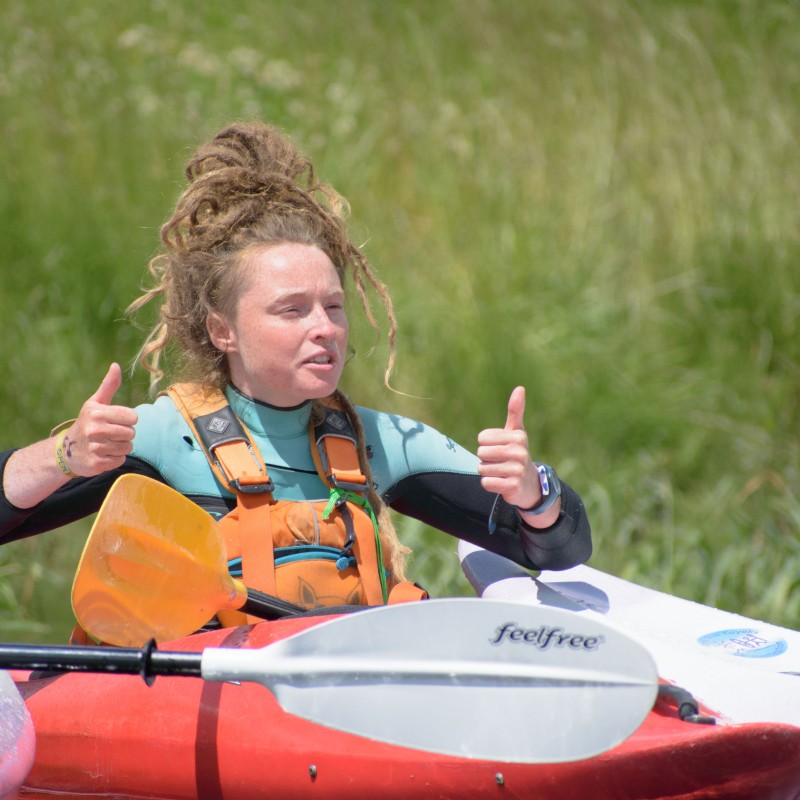
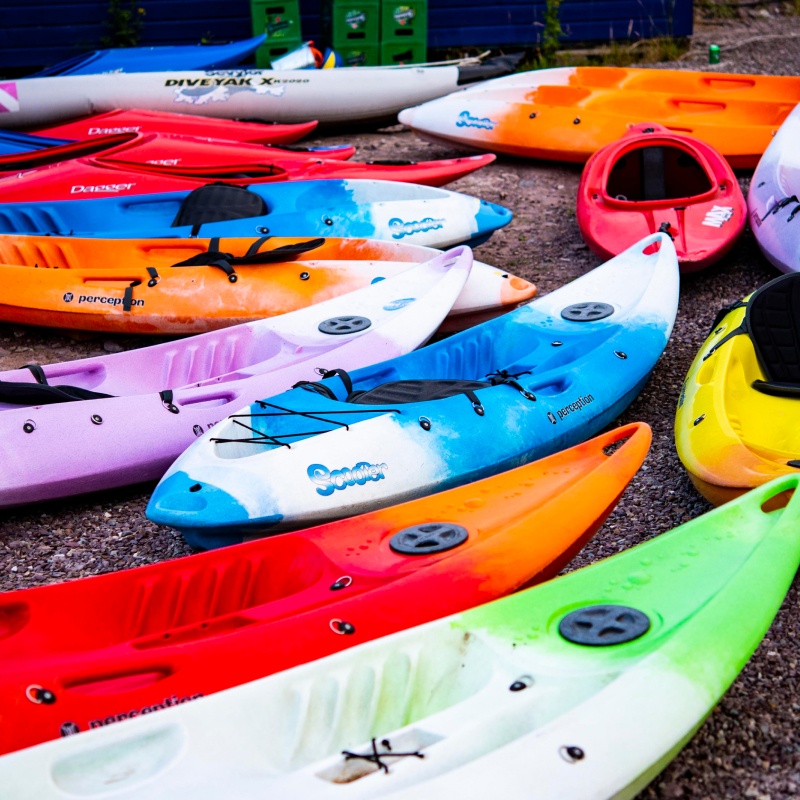
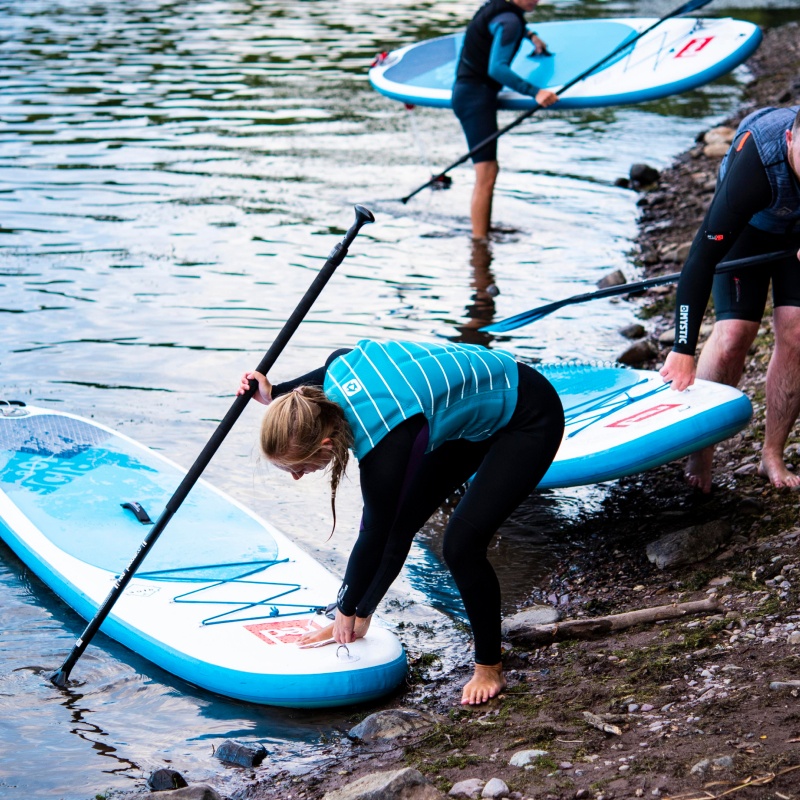

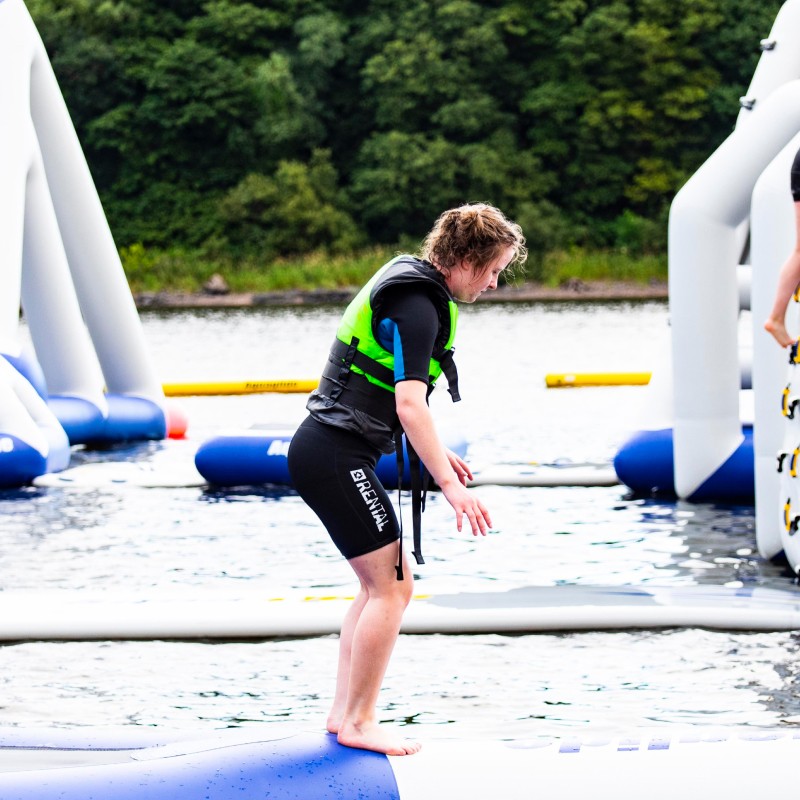

 Ballyhass Mallow
Ballyhass Mallow

